MercoPress. South Atlantic News Agency
Latin America
-
Wednesday, October 8th 2008 - 21:00 UTC
Latam markets plunge and growth forecasts downgraded

Latinamerican markets finished sharply lower on Tuesday under pressure from the slide on Wall Street, falling commodity prices and uncertainty about the future. Growth forecasts have also been downgraded.
-
Wednesday, October 8th 2008 - 21:00 UTC
Commodities windfalls are over for Latam, says IMF

Latin American economies are facing an awkward combination of slowing activity, more difficult external conditions, and still-high inflation. After four years of strong output growth, the pace eased in most economies of the region during the first half of 2008, largely because of moderating exports, according to the IMF World Economic Outlook.
-
Wednesday, October 8th 2008 - 21:00 UTC
Brazil and Mexico sell bank reserves to support currencies
Latin American stocks and currencies fell during another day of volatile trading on Wednesday on fears of a global slowdown. Several central banks had to intervene to cool the demand for US dollars.
-
Tuesday, October 7th 2008 - 21:00 UTC
Argentina and Chile prepare Beagle peace celebrations
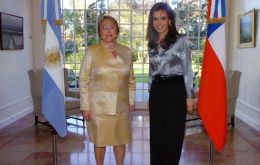
Argentina and Chilean presidents will lead peace and reconciliation celebrations next December in Punta Arenas on the thirtieth anniversary of the papal intervention which prevented a full fledged war over the Beagle channel between the neighbouring countries back in 1978.
-
Tuesday, October 7th 2008 - 21:00 UTC
Chile's first monthly trade deficit in six years
The Chilean economy experienced an unexpected trade deficit in September, the first negative month in six years according to the latest release from the Central Bank. The misbalance was 318 million US dollars; a year ago it was a surplus of 1.37 billion US dollars.
-
Monday, October 6th 2008 - 21:00 UTC
Venezuela's Chavez promises he'll be in office until 2021
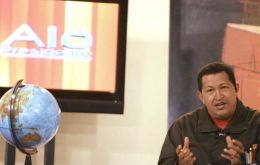
Venezuela's Hugo Chavez announced he would not be leaving government until after 2021, in spite of the fact his mandate ends in 2013 and the current constitution does not allow for a new re-election.
-
Monday, October 6th 2008 - 21:00 UTC
Norwegian company involved in Peruvian energy scandal
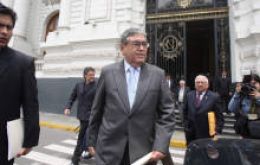
A scandal over alleged oil kickbacks has forced out Peru's Energy minister and two top state oil company executives and led the government to void five oil contracts with Norway's Discover Petroleum, officials said Monday.
-
Monday, October 6th 2008 - 21:00 UTC
Morales and Bolivian opposition could only agree on group photo
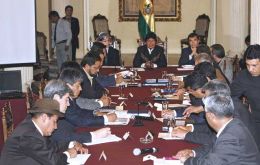
Bolivian President Evo Morales and opposition governors failed to reach an agreement on Sunday after weeks of negotiations and the dispute over a new constitution apparently will be decided by Congress calling a national referendum on the issue.
-
Sunday, October 5th 2008 - 21:00 UTC
Flyglobespan to lease planes in low season to Chile

Flyglobespan, the Scottish low-cost airline which has a contract for the Falkland Islands Brize Norton air bridge, has clinched deals to lease up to four of its aircraft to LAN Chilean Airways over the winter months, according to a report from the Sunday Times.
-
Sunday, October 5th 2008 - 21:00 UTC
Mega yacht with missile shield for Chelsea's Abramovich
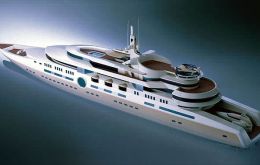
The owner of Britain's Chelsea football club, Roman Abramovich, is having a new £200m mega-yacht built, complete with a missile detection system to protect him against pirates and terrorists, reports The Times.
